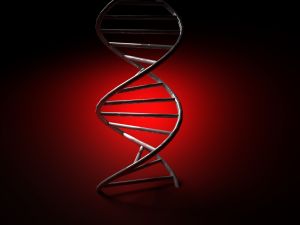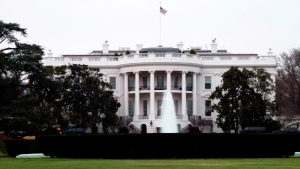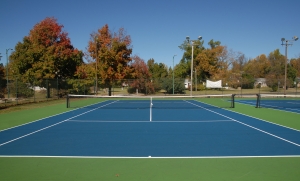Assoc. for Molecular Pathology v. Myriad Genetics, Inc., United States Supreme Court (6/13/13)
Drugs & Biotech, Patents
 Myriad obtained patents after discovering the precise location and sequence of the BRCA1 and BRCA2 genes, mutations of which can dramatically increase the risk of breast and ovarian cancer. The discovery enabled Myriad to develop medical tests for detecting mutations for assessing cancer risk. Myriad’s patents would give it the exclusive rights to isolate an individual’s BRCA1 and BRCA2 genes and to synthetically create BRCA composite DNA. The district court entered summary judgment, finding the patents invalid under 35 U.S.C. 101 because they covered products of nature. On remand following the Supreme Court’s decision, Mayo Collaborative Servs. v. Prometheus Labs, Inc., the Federal Circuit found both isolated DNA and composite DNA patent-eligible. The Supreme Court affirmed in part and reversed in part, noting that the case did not involve “method claims” for new applications of knowledge about the genes or the patentability of DNA in which the order of the naturally occurring nucleotides has been altered. A naturally-occurring DNA segment is not patent-eligible merely because it has been isolated, but composite DNA is patent-eligible because it is not naturally-occurring. Myriad did not create or alter the genetic information encoded in the genes or the genetic structure of the DNA. Even brilliant discovery does not alone satisfy the section 101 inquiry. Myriad’s claims are not saved by the fact that isolating DNA from the human genome severs chemical bonds that bind gene molecules together. The claims are not expressed in terms of chemical composition, nor do they rely on the chemical changes resulting from the isolation of a particular DNA section. Composite DNA, however, is not a “product of nature;” a lab technician unquestionably creates something new when introns are removed from a DNA sequence to make composite DNA.
Myriad obtained patents after discovering the precise location and sequence of the BRCA1 and BRCA2 genes, mutations of which can dramatically increase the risk of breast and ovarian cancer. The discovery enabled Myriad to develop medical tests for detecting mutations for assessing cancer risk. Myriad’s patents would give it the exclusive rights to isolate an individual’s BRCA1 and BRCA2 genes and to synthetically create BRCA composite DNA. The district court entered summary judgment, finding the patents invalid under 35 U.S.C. 101 because they covered products of nature. On remand following the Supreme Court’s decision, Mayo Collaborative Servs. v. Prometheus Labs, Inc., the Federal Circuit found both isolated DNA and composite DNA patent-eligible. The Supreme Court affirmed in part and reversed in part, noting that the case did not involve “method claims” for new applications of knowledge about the genes or the patentability of DNA in which the order of the naturally occurring nucleotides has been altered. A naturally-occurring DNA segment is not patent-eligible merely because it has been isolated, but composite DNA is patent-eligible because it is not naturally-occurring. Myriad did not create or alter the genetic information encoded in the genes or the genetic structure of the DNA. Even brilliant discovery does not alone satisfy the section 101 inquiry. Myriad’s claims are not saved by the fact that isolating DNA from the human genome severs chemical bonds that bind gene molecules together. The claims are not expressed in terms of chemical composition, nor do they rely on the chemical changes resulting from the isolation of a particular DNA section. Composite DNA, however, is not a “product of nature;” a lab technician unquestionably creates something new when introns are removed from a DNA sequence to make composite DNA.
Read More: Natural DNA Cannot Be Patented, Supreme Court Rules
Gary Friedrich Enters., LLC v. Marvel Characters, Inc., US 2nd Cir. (6/11/13)
Contracts, Copyright, Intellectual Property, Trademark
Plaintiff sued Marvel, contending that he conceived the comic book character “Ghost Rider,” the related characters, and the origin story. Plaintiff also claimed that he owned the renewal term copyrights in those works. On appeal, plaintiff challenged the district court’s grant of summary judgment in favor of Marvel, holding that plaintiff had assigned any rights he had in the renewal term copyrights to Marvel when he executed a form work-for-hire agreement (the Agreement), six years after the initial publication of the issue in question. The court, by applying the “strong presumption against the conveyance of renewal rights,” concluded that the district court erred in holding as a matter of law that plaintiff had assigned his renewal rights to Marvel by signing the Agreement; plaintiff’s claim was not untimely as a matter of law because there were genuine disputes regarding whether plaintiff should have known about Marvel’s repudiation of his claim of ownership; and there were genuine disputes of material fact that precluded granting summary judgment on the issue of authorship. Accordingly, the court vacated and remanded for trial.
Read More: Marvel Must Defend ‘Ghost Rider’ Copyright, Court Says
 California’s Public Records Act survived a near miss last week. The EFF reports that the California legislature passed a bill last week that included a trailer to cut CPRA funding. The trailer bill would have made compliance with the CPRA optional for local governments.
California’s Public Records Act survived a near miss last week. The EFF reports that the California legislature passed a bill last week that included a trailer to cut CPRA funding. The trailer bill would have made compliance with the CPRA optional for local governments.

 Myriad obtained patents after discovering the precise location and sequence of the BRCA1 and BRCA2 genes, mutations of which can dramatically increase the risk of breast and ovarian cancer. The discovery enabled Myriad to develop medical tests for detecting mutations for assessing cancer risk. Myriad’s patents would give it the exclusive rights to isolate an individual’s BRCA1 and BRCA2 genes and to synthetically create BRCA composite DNA. The district court entered summary judgment, finding the patents invalid under 35 U.S.C. 101 because they covered products of nature. On remand following the Supreme Court’s decision, Mayo Collaborative Servs. v. Prometheus Labs, Inc., the Federal Circuit found both isolated DNA and composite DNA patent-eligible. The Supreme Court affirmed in part and reversed in part, noting that the case did not involve “method claims” for new applications of knowledge about the genes or the patentability of DNA in which the order of the naturally occurring nucleotides has been altered. A naturally-occurring DNA segment is not patent-eligible merely because it has been isolated, but composite DNA is patent-eligible because it is not naturally-occurring. Myriad did not create or alter the genetic information encoded in the genes or the genetic structure of the DNA. Even brilliant discovery does not alone satisfy the section 101 inquiry. Myriad’s claims are not saved by the fact that isolating DNA from the human genome severs chemical bonds that bind gene molecules together. The claims are not expressed in terms of chemical composition, nor do they rely on the chemical changes resulting from the isolation of a particular DNA section. Composite DNA, however, is not a “product of nature;” a lab technician unquestionably creates something new when introns are removed from a DNA sequence to make composite DNA.
Myriad obtained patents after discovering the precise location and sequence of the BRCA1 and BRCA2 genes, mutations of which can dramatically increase the risk of breast and ovarian cancer. The discovery enabled Myriad to develop medical tests for detecting mutations for assessing cancer risk. Myriad’s patents would give it the exclusive rights to isolate an individual’s BRCA1 and BRCA2 genes and to synthetically create BRCA composite DNA. The district court entered summary judgment, finding the patents invalid under 35 U.S.C. 101 because they covered products of nature. On remand following the Supreme Court’s decision, Mayo Collaborative Servs. v. Prometheus Labs, Inc., the Federal Circuit found both isolated DNA and composite DNA patent-eligible. The Supreme Court affirmed in part and reversed in part, noting that the case did not involve “method claims” for new applications of knowledge about the genes or the patentability of DNA in which the order of the naturally occurring nucleotides has been altered. A naturally-occurring DNA segment is not patent-eligible merely because it has been isolated, but composite DNA is patent-eligible because it is not naturally-occurring. Myriad did not create or alter the genetic information encoded in the genes or the genetic structure of the DNA. Even brilliant discovery does not alone satisfy the section 101 inquiry. Myriad’s claims are not saved by the fact that isolating DNA from the human genome severs chemical bonds that bind gene molecules together. The claims are not expressed in terms of chemical composition, nor do they rely on the chemical changes resulting from the isolation of a particular DNA section. Composite DNA, however, is not a “product of nature;” a lab technician unquestionably creates something new when introns are removed from a DNA sequence to make composite DNA. Maryland v King
Maryland v King California is proposing to charge citizens to access and read court files and other public documents. The Administrative Office of the Courts has proposed that the state charge $10 for every name, file, or information that comes back from a search.
California is proposing to charge citizens to access and read court files and other public documents. The Administrative Office of the Courts has proposed that the state charge $10 for every name, file, or information that comes back from a search.  President Obama
President Obama  Tennis Channel, a sports programming network and intervenor in this suit, filed a complaint against Comcast Cable, a multichannel video programming distributor (MVPD), alleging that Comcast violated section 616 of the Communications Act of 1934, 47 U.S.C. 536(a)(3), and the Commission’s regulations by refusing to broadcast Tennis as widely as it did its own affiliated sports programming networks, Golf Channel and Versus. An ALJ ruled against Comcast, ordering that it provide Tennis carriage equal to what it afforded Golf and Versus, and the Commission affirmed. The court concluded that Comcast prevailed with its third set of arguments on appeal, that even under the Commission’s interpretation of section 616, the Commission had failed to identify adequate evidence of unlawful discrimination. The Commission had nothing to refute Comcast’s contention that its rejection of Tennis’s proposal was simply “a straight up financial analysis.” Accordingly, the court granted the petition.
Tennis Channel, a sports programming network and intervenor in this suit, filed a complaint against Comcast Cable, a multichannel video programming distributor (MVPD), alleging that Comcast violated section 616 of the Communications Act of 1934, 47 U.S.C. 536(a)(3), and the Commission’s regulations by refusing to broadcast Tennis as widely as it did its own affiliated sports programming networks, Golf Channel and Versus. An ALJ ruled against Comcast, ordering that it provide Tennis carriage equal to what it afforded Golf and Versus, and the Commission affirmed. The court concluded that Comcast prevailed with its third set of arguments on appeal, that even under the Commission’s interpretation of section 616, the Commission had failed to identify adequate evidence of unlawful discrimination. The Commission had nothing to refute Comcast’s contention that its rejection of Tennis’s proposal was simply “a straight up financial analysis.” Accordingly, the court granted the petition. In 1993, Lancaster, a former police officer with a long history of severe mental-health problems, killed his girlfriend. At his jury trial in Michigan state court, Lancaster asserted a defense of diminished capacity. Under then-prevailing Michigan Court of Appeals precedent, the diminished-capacity defense permitted a legally sane defendant to present evidence of mental illness to negate the specific intent required to commit a particular crime. The jury convicted him of first-degree murder. Lancaster later obtained federal habeas relief. By the time of Lancaster’s retrial, the Michigan Supreme Court had rejected the diminished-capacity defense in its 2001 decision, Carpenter. The judge at his second trial applied Carpenter and disallowed renewal of his diminished-capacity defense. Lancaster was again convicted. The Michigan Court of Appeals rejected Lancaster’s argument that retroactive application of Carpenter violated due process. Lancaster reasserted his due process claim in a federal habeas petition. The district court denied the petition, but the Sixth Circuit reversed. A unanimous Supreme Court reversed, holding that Lancaster is not entitled to federal habeas relief. The Michigan Court of Appeals’ rejection of Lancaster’s due process claim does not represent an unreasonable application of Supreme Court precedent, 28 U. S. C.2254(d)(1). In Carpenter, the Michigan Supreme Court rejected a diminished-capacity defense, reasonably finding the defense to have no origin in an on-point statute. The Supreme Court has never found a due process violation where a state supreme court, squarely addressing a particular issue for the first time, rejected a consistent line of lower court decisions based on the supreme court’s reasonable interpretation of a controlling statute. Fair-minded jurists could conclude that a state supreme court decision of that order is not “unexpected and indefensible by reference to [existing] law.”
In 1993, Lancaster, a former police officer with a long history of severe mental-health problems, killed his girlfriend. At his jury trial in Michigan state court, Lancaster asserted a defense of diminished capacity. Under then-prevailing Michigan Court of Appeals precedent, the diminished-capacity defense permitted a legally sane defendant to present evidence of mental illness to negate the specific intent required to commit a particular crime. The jury convicted him of first-degree murder. Lancaster later obtained federal habeas relief. By the time of Lancaster’s retrial, the Michigan Supreme Court had rejected the diminished-capacity defense in its 2001 decision, Carpenter. The judge at his second trial applied Carpenter and disallowed renewal of his diminished-capacity defense. Lancaster was again convicted. The Michigan Court of Appeals rejected Lancaster’s argument that retroactive application of Carpenter violated due process. Lancaster reasserted his due process claim in a federal habeas petition. The district court denied the petition, but the Sixth Circuit reversed. A unanimous Supreme Court reversed, holding that Lancaster is not entitled to federal habeas relief. The Michigan Court of Appeals’ rejection of Lancaster’s due process claim does not represent an unreasonable application of Supreme Court precedent, 28 U. S. C.2254(d)(1). In Carpenter, the Michigan Supreme Court rejected a diminished-capacity defense, reasonably finding the defense to have no origin in an on-point statute. The Supreme Court has never found a due process violation where a state supreme court, squarely addressing a particular issue for the first time, rejected a consistent line of lower court decisions based on the supreme court’s reasonable interpretation of a controlling statute. Fair-minded jurists could conclude that a state supreme court decision of that order is not “unexpected and indefensible by reference to [existing] law.”